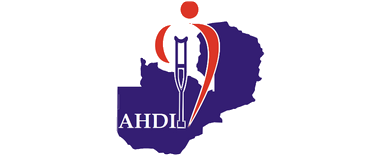The Community Based Intervention (CBI) programme started in 1993 as a philanthropic project of the then British High Commissioner’s wife, Mrs. Archie Hinchcliffe who was working at UTH as a Physiotherapist volunteer. Upon her departure, Action on Disability (ADD), a UK based NGO which had an office in Zambia, took over the running of the programme until 2006, which after a lot of consultations from various stakeholders, was separated to operate autonomously under a new board and its name changed to Community Based Intervention Association (CBIA – 2007).
In 2013, the organization was re-registered with Patent and Companies Registration Agency (PACRA) as Archie Hinchcliffe Disability Intervention (AHDI) to further enhance its visibility as an independent, efficient and progressive organization that is growing in its capacity to serve and deliver for its clients. Further, it was registered with PACRA as not for profit organization in order to gain greater advantage including higher recognition levels during fundraising and advocacy.
Currently it is operating under the governance of the Board of Directors comprising seven (7) members.
The vision, mission and the objectives (goals) of AHDI endeavor to address the rights of children with disabilities such as education, health and protection from all forms of abuse.
AHDI works with the District Medical Office; the main stakeholders, in the Health Centers which AHDI uses for outreach programmes, and works with the Ministry of education as most of the home based education zonal meetings are held in their premises. It partners with the communities in the delivery of services and has been advocating for better services for children with disabilities. The response has been generally positive, though slow. Hence AHDI still has a great deal of work to do in advocating for the rights of children with disabilities
